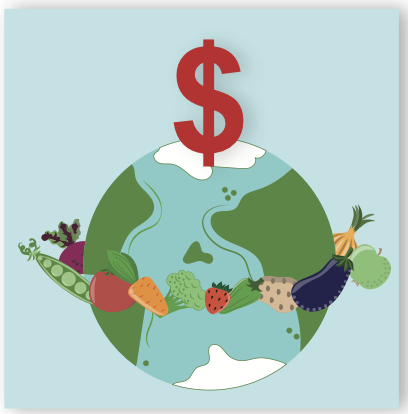Hearing Loss Linked to Overweight
Heres a new reason for watching your waistline and keeping active thats worth listening to: Extra weight and greater waist circumference are linked to a higher risk of hearing loss with aging, while moderate physical activity is associated with reduced risk.
Frozen Produce as Good as Fresh, Better Than Refrigerated
Frozen produce is just as nutritious as fresh-and superior in vitamin and mineral content to fresh produce stored in the refrigerator for a few days.
European Agency Says Aspartame Safe
After one of the most comprehensive risk assessments of aspartame ever undertaken, the European Food Safety Authority (EFSA) has concluded the artificial sweetener is safe at recommended levels of consumption.
Confusing Labels Cause Food Waste
Is your household throwing away hundreds of dollars worth of usable food every year? Thats the conclusion of a new report by the Natural Resources Defense Council and Harvard Food Law and Policy Clinic, which warns that $165 billion of edible food is tossed in the trash annually and 40% of US food production never gets eaten. The leading culprit? Confusing food date labels, according to the report.
The Thrill of Victory, the Fat of Defeat
Rooting for the home team could be hard on your arteries when your football favorites lose, especially if its a nail-biter. French researchers report that fans whose NFL team lost consumed as much as 28% more saturated fat the next day.
Serial Snackers Now 21% of Population
In the latest evidence that day-long snacking is overtaking traditional mealtimes, a new report says more than one in five Americans-21%-now graze on snacks all day long, skipping meals completely
Antioxidants Vary in Green Tea
Green tea is touted for its health-promoting properties in large part because of its high levels of antioxidants called catechins, especially epigallocatechin gallate (EGCG).
Gulf Between Perception and Reality in Nutrient Intakes
Most Americans arent doing nearly as well in getting key nutrients as we think we are, according to the International Food Information Council. The new study of more than 1,000 US adults identified wide disparities between consumer perception and actual consumption.
FDA Moves to Effectively Ban Artificial Trans Fats
he US Food and Drug Administration has proposed a regulatory change that would all but eliminate artificial trans fats by ruling them no longer generally recognized as safe.
Breakfast Key for Nutrients-But Many Skip It
More Americans are skipping breakfast or grabbing it on the go, with only about 6 in 10 eating breakfast at home. Thats one finding from a new National Dairy Council analysis of data from the National Health and Nutrition Examination Survey (NHANES).

























